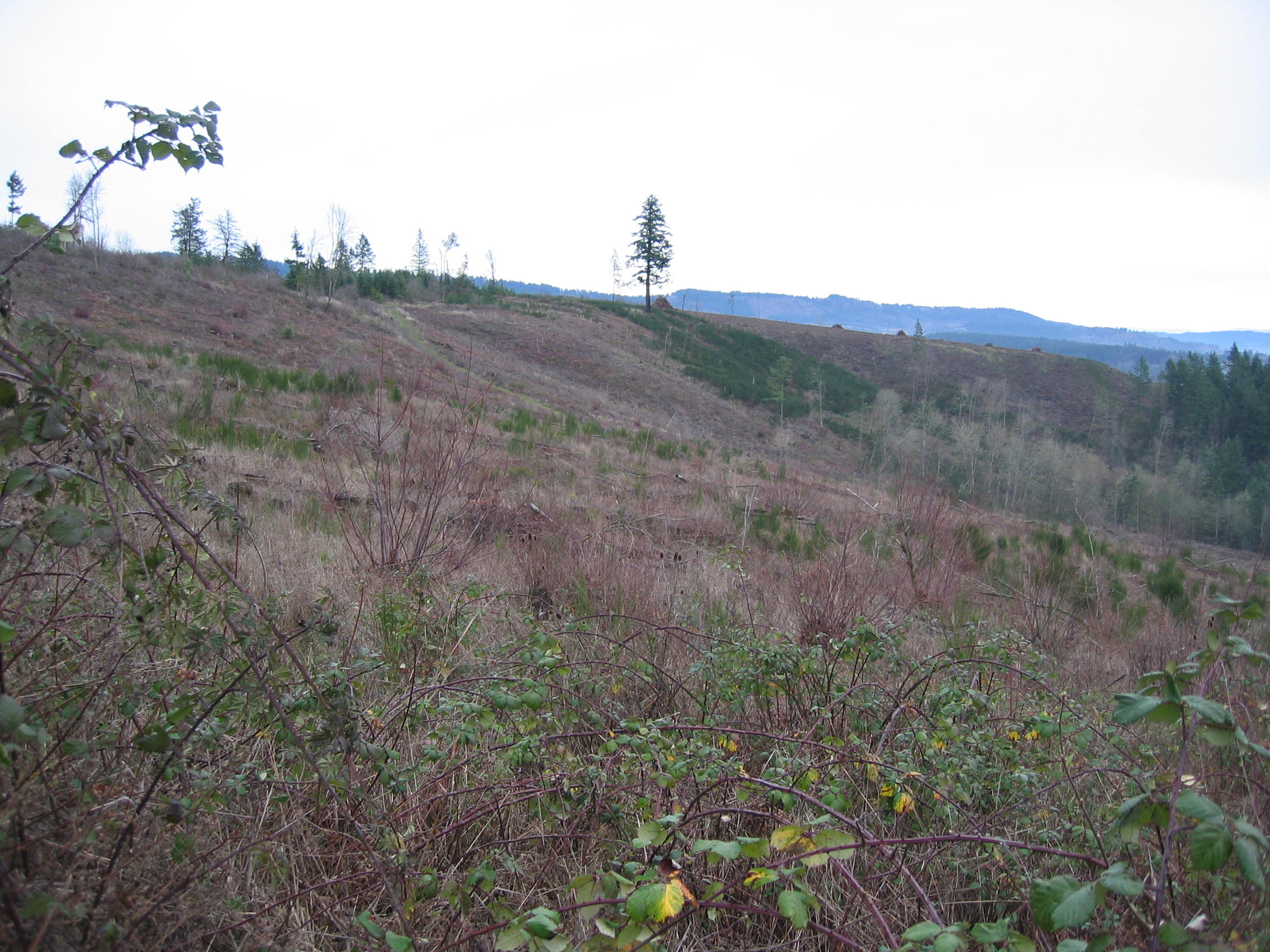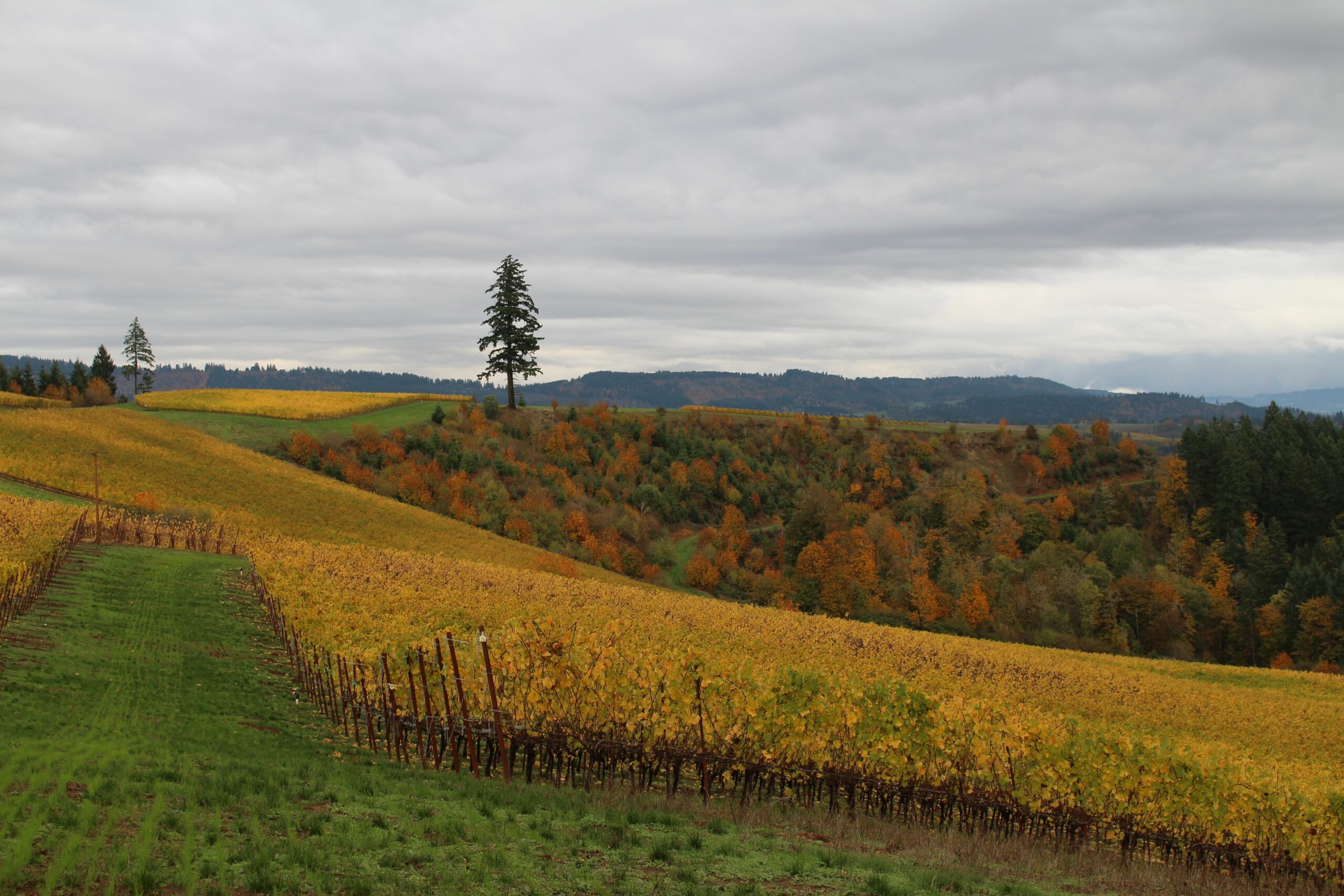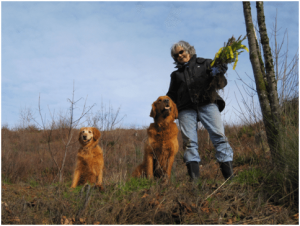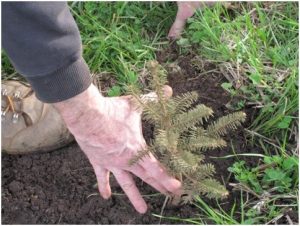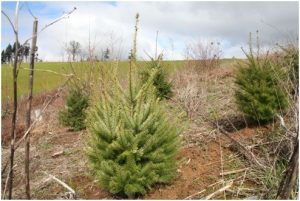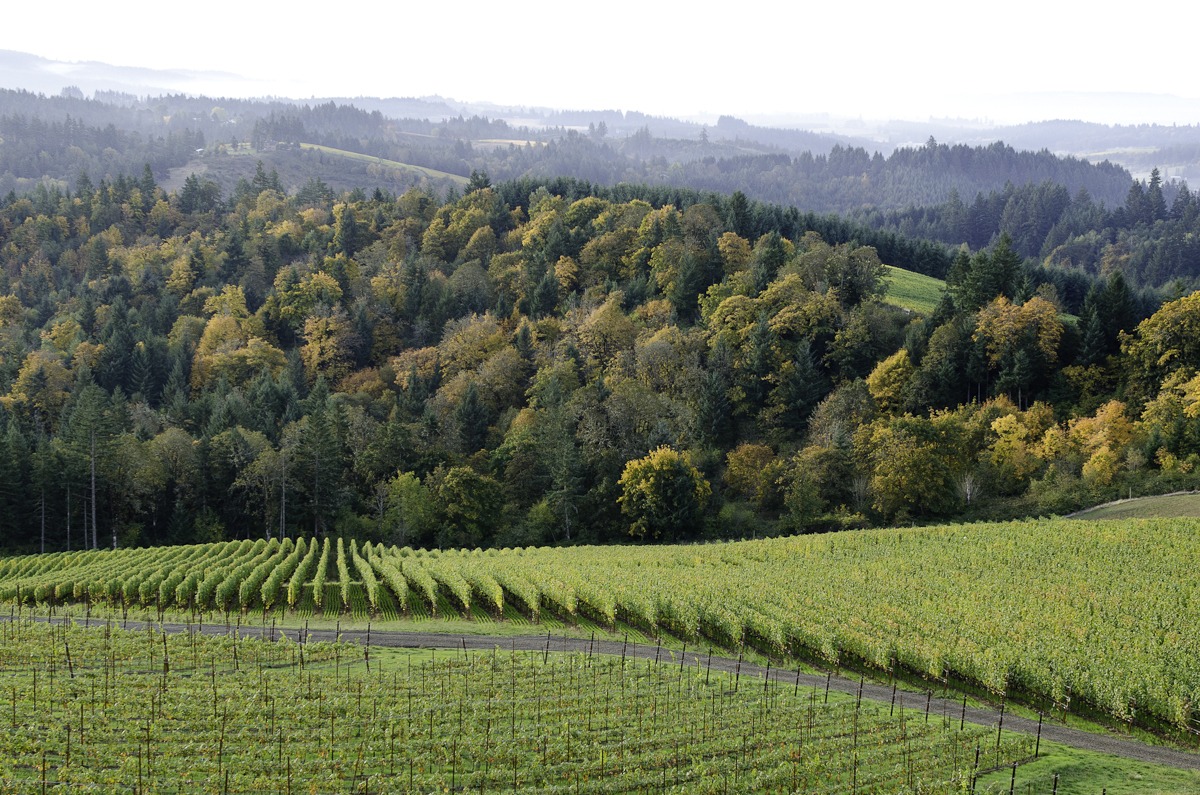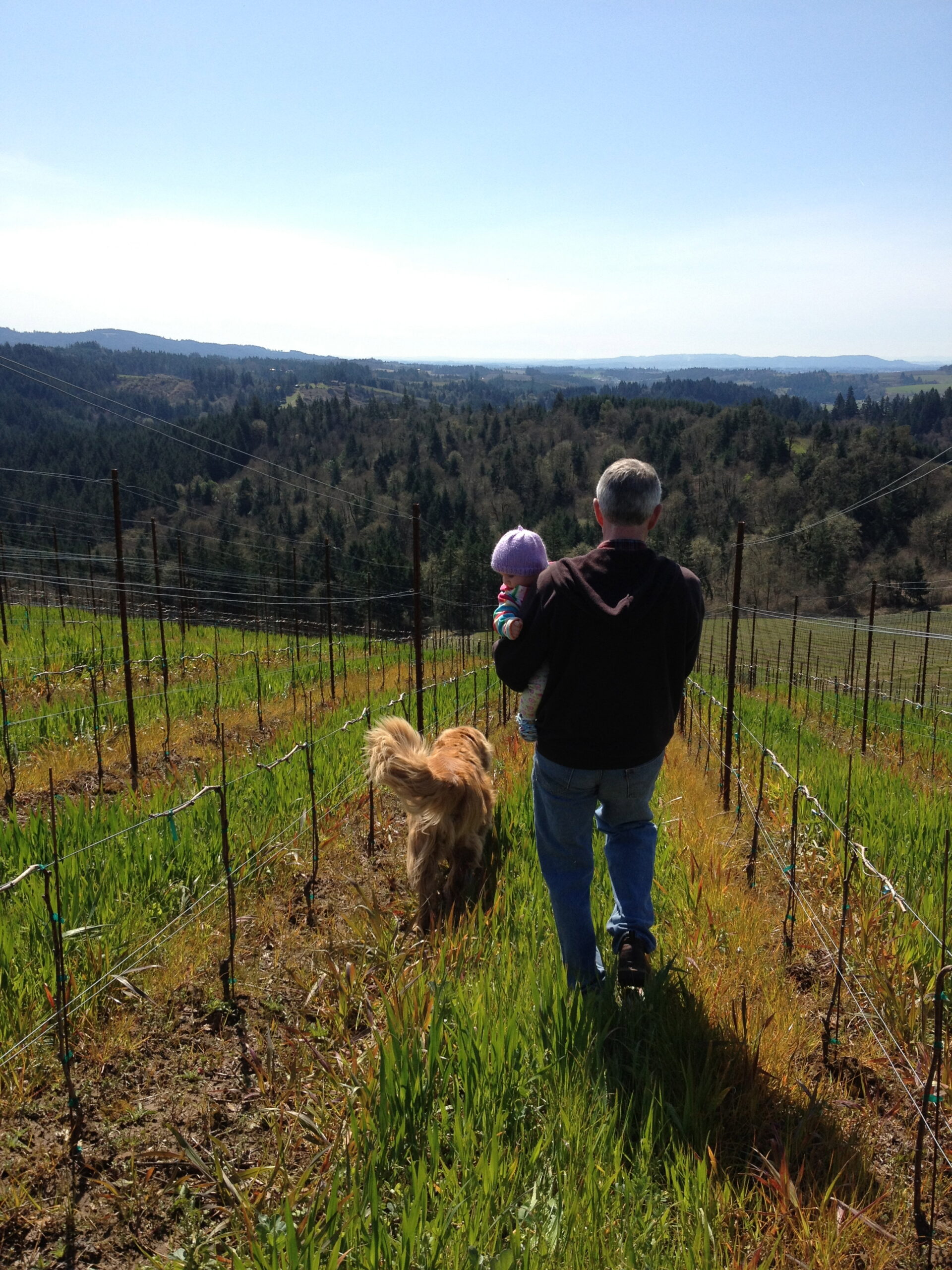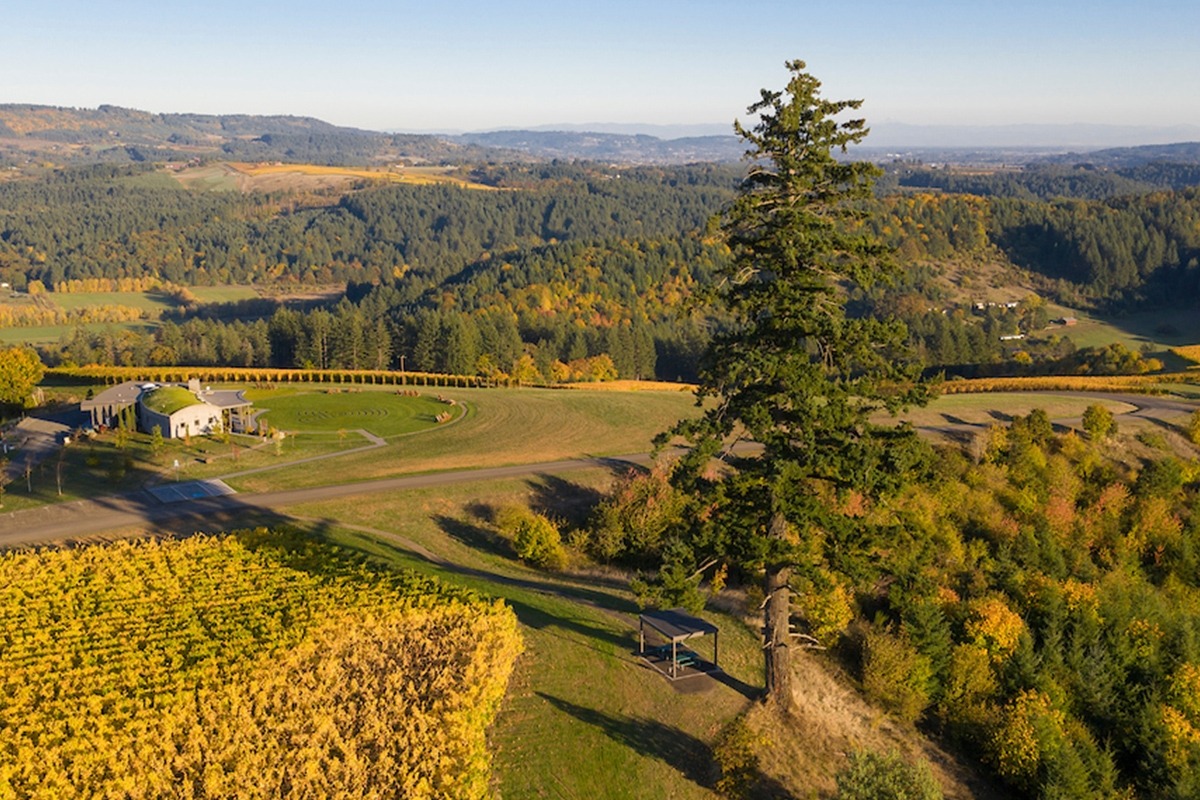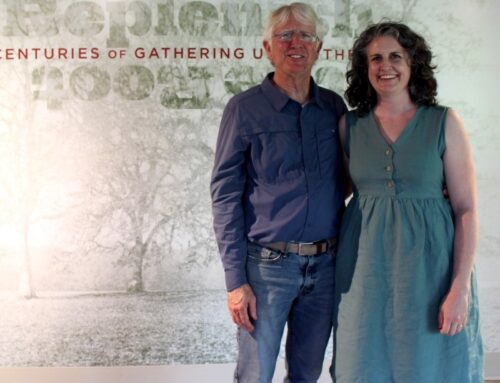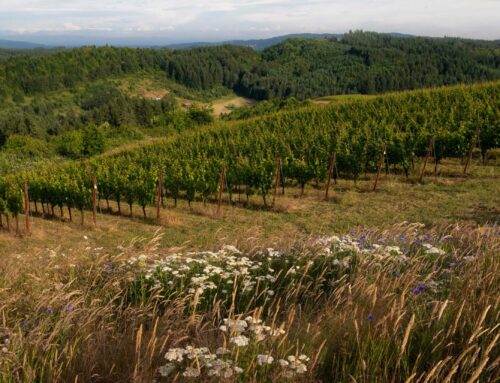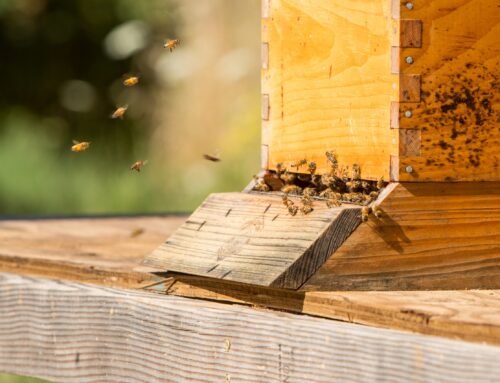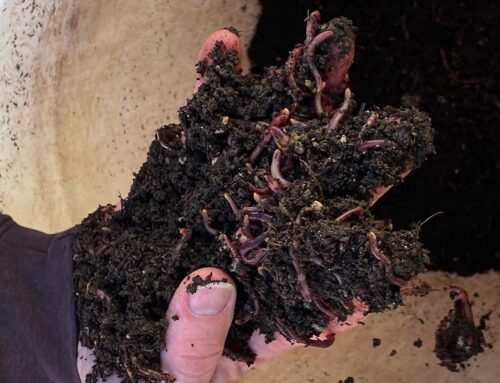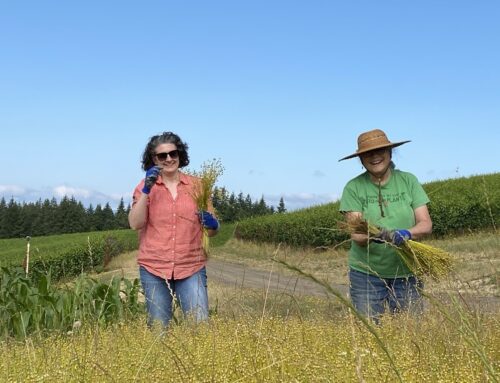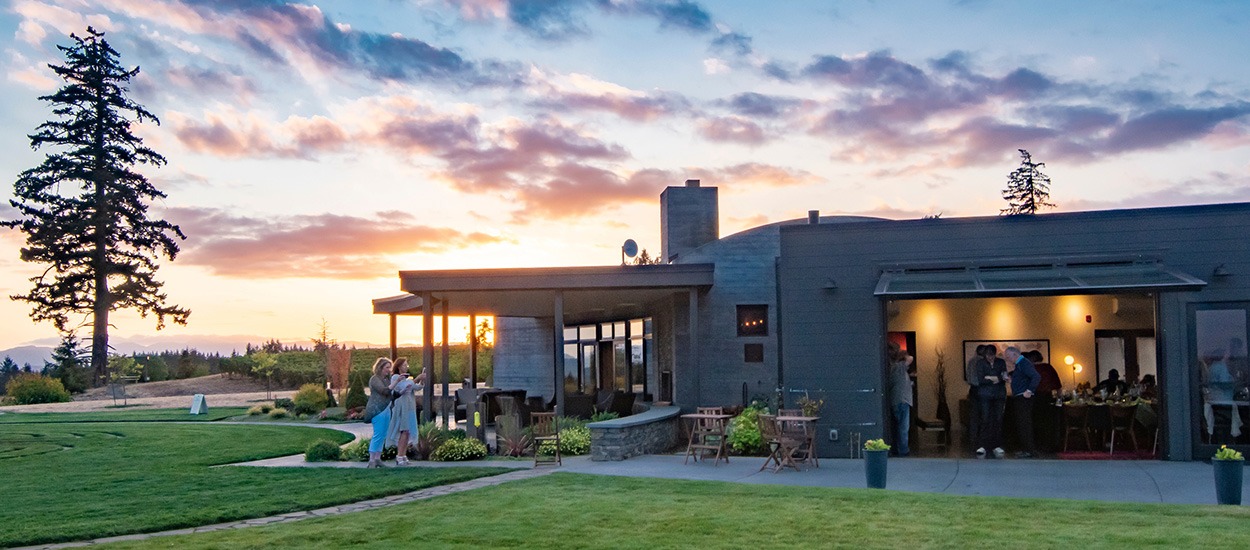Compliance and Standards
Fairsing Vineyard became a Certified Family Forest in 2013. Certification as a Family Forest requires compliance with sustainability standards established by the American Tree Farm System (ATFS).
The ATFS is the largest and oldest woodland certification system in America. ATFS certified Tree Farms must meet eight standards of ecological and economic sustainable forest management.
You may ask yourself why a vineyard became a Certified Sustainable Forest? The answer is obvious when you consider the diversity of our site and our commitment to sustainability.
Natural Forest Habitat
When we purchased Fairsing’s 170-acre site all but 30 acres was a clear-cut forest. About 90 acres were suitable for vineyard development.
Thus 80 acres of the site could be returned to its natural habitat as a forest.
We decided that if our sustainable vineyard was to be surrounded by a forest, it must be a sustainable forest.
Mature and Reforested Acres
In 2007 we planted the first 9,500 Douglas fir trees. We complemented those conifers with an under-story of 3,000 deciduous trees and native shrubs.
Early totals reflect having planted a total of 18,000 conifers, 3,000 deciduous trees and 6,000 shrubs.
Many of the earliest planted Douglas firs are already over ten feet tall. The barren land that we acquired is now shaping up to be a beautiful forest.
Fairsing’s 80 acres of forest has 30 acres of established trees that are about twenty years old. Over the past two years we have thinned out 20-25 percent of those trees so that the remaining forest could thrive. As a result of the thinning there was a noticeable increase in wildlife in the area.
Celebrating with Trees
In February of 2021, in celebration of our anniversary at Fairsing Vineyard, we planted a variety of new trees across the estate including Japanese maple and incense cedar.
To expand upon our commitment with the Willamette Partnership as signatory members of the Oak Accord, 1,000 bare-root Oregon white oak saplings were planted on the southeastern edge of the estate near existing oaks of varied maturity.
Certified Sustainable
The LIVE (Low Input Viticulture and Enology) certification requires that the same sustainable agricultural practices utilized in the vineyard be applied to the entire 170-acre site.
LIVE’s restrictions on the use of pesticides and herbicides were more than adequate for the ATFS certification. It took us a few years to develop and implement a Forest Management Plan that covered the remainder of ATFS’s standards.
There was a time in my life when I focused on an hourly schedule. Farming expands that focus to the movement of the seasons. Tree farming expands that focus beyond forty years – the economic life of a tree.
My hope is that future generations will be able to enjoy the beauty of our Certified Family Forest.
Mike McNally, Fairsing Vineyard
The Willamette Valley Oak Accord is a voluntary conservation agreement by landowners to protect and restore native oak habitat on their property. To follow Fairsing’s progress as a signatory member of the Oak Accord click here.
To read about other sustainable initiatives implemented or enhanced to honor Fairsing’s anniversary click here.
